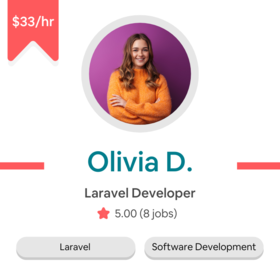













DevOps engineers are among the most difficult tech roles to fill in any software or firmware development company, but you can't afford to be without them, so we're here to help.
“Dev” is for development, and “Ops” stands for operations. Therefore, DevOps engineers are tech professionals who know everything there is to know about both software development and IT operations. They’re so good at what they do that letting them work on only either of those things in any given project would be a terrible waste of talent.
The vast majority of tech firms still abide by the old practice of separating the programming (coding) parts of software development from the IT operations; this is a system we know as a "siloed" division, where one team is almost completely isolated from the other despite having the same goal. There is barely any direct communication between the Dev and the Ops, but thankfully, that's where DevOps engineers come in. Before you say everyone should start breaking down the silo culture because it sounds like a great concept indeed, bear in mind that it's there for many good reasons, for example, maintaining shelters of creativity and avoiding unnecessary conflicts.
In a typical siloed software development process, the coders and programmers build the software without regard for the hardware (IT infrastructure). They don't care whether the IT people can allocate the hardware resources necessary to run and host the software. If you're a developer team member, you'd appreciate the level of creative freedom made possible by the separation.
Once the coding part is completed—at this point, the software is considered ready for deployment—the developers hand it over to the IT department. From now on, it's the turn of the IT people to study the software they know nothing about and manage the hardware side of the deployment process. In essence, they have to configure the hardware resources to accommodate the software specifications.
However, if both departments are left completely isolated from each other, the only possible outcome is an inefficient collaboration that bottlenecks, as opposed to improves, the workflow. The IT department practically takes over the deployment task without any detailed information about the software in the first place. In the absence of DevOps engineers, the two teams do not communicate beyond sending bug reports and logs to each other. Every time the developers make new updates, the scarcity of shared knowledge leads to the same hassle. Unfortunately, the painstakingly slow cycle is not an uncommon issue in software development projects of any kind.
DevOps engineers exist not to tear down the isolated nature of the traditional siloed software development process but to minimize the possibility of unsolvable differences between the two teams. The siloed process has been a staple in the industry forever and will not go away anytime soon. It offers far too many advantages from the developers' perspective that an abrupt stop will do more damage than good. It's wrong to assume that the demise of siloed development will yield better communication; there's no guarantee for that. At the moment, the best possible workaround to both optimize the benefits and navigate the drawbacks is to bring capable DevOps engineers into the mix.
It's actually pretty self-explanatory. DevOps engineers manage the collaboration between developers and IT operations and provide technical support whenever necessary. They work with project managers, coders, testers, systems technicians, and IT operators during the entire software development, testing, quality assurance, deployment, and maintenance phase.
DevOps engineers don't specialize in either software coding or IT hardware, but they know their way around both fields well enough to connect the otherwise isolated tasks. Think of them as tech "generalists" with a broad set of expertise in software development and operation, including programming/coding, hardware configuration, cloud infrastructure management, distributed systems engineering, internal tools utilization, and the old-school system administration for on-premise servers, among others. It's a demanding role best left to an expert, a professional with relevant hard skills and commendable soft skills to overcome the barriers (both technical and cultural) between software development and deployment.
As mentioned before, DevOps engineers are among the rare tech roles most employers struggle to fill for the simple reason that there's no traditional career path for them. Their main strength is diversity in both background and experience, but that also means it's very difficult for employers to identify talents early on. Most IT employees aren't good at coding, just as most programmers aren't trained as system administrators.
You can almost say that a DevOps engineer is an experienced programmer (software developer) and advanced IT operator in one package. Because of the complexity of the roles, most DevOps usually get into the position after spending years in the two specializations at different points in the career track. For example, a DevOps engineer started a career as an entry-level programmer before advancing to become a software developer who also had to manage some aspects of IT operations; in another case, a system administrator was given the opportunity to learn about coding and software/hardware integration after several years on the job and eventually getting promoted to DevOps engineer position.
Since the role requires DevOps engineers to essentially become the links that connect software development and IT operations, cross-team collaboration is a fundamental aspect of the role. Things get even more complicated when each of the two departments is further divided into multiple groups based on specific duties such as web apps, mobile apps, database management, security analysis, legacy apps, etc.
DevOps engineers work with many people of varied technical backgrounds and must streamline multiple different processes into a single manageable workflow. Good communication and management skills are of the utmost importance.
Wouldn’t it be great to have a rock star DevOps who has all the skill sets anybody could ever need in software development and IT operations? Cad Crowd has been in the industry long enough to know that finding one in the wild is near impossible. In reality, what you consider rock star DevOps engineers are a very rare breed. They must have been lucky enough to have spent years at companies/organizations that constantly exposed them to various development and IT tools early on, and now they’ve gained a lot of experience in both fields. The vast majority (if not all) of them are passive candidates.
We never meant to say that it's beyond our ability to connect you with a rock star DevOps or two. Our recruiters definitely can do that, as they've done many times before, but we need to remind you that DevOps of such caliber doesn't come easy. Based on our own experience as a staffing agency, mere market-average salary and package probably won't sway their opinions.
The good thing is that even the non-rock star DevOps talents are likely competent at the most important hard skills as follows:
● Continuous Integration (CI): the task of automating the continuous cycle of software development of updates. Most modern software/apps are developed by multiple teams simultaneously. CI makes sure that all changes to the original codes are automatically tested and verified to prevent conflicts with each other. New codes should not break the existing ones. If the automated testing and validation discover issues, it’s easier to fix the bugs.
● Continuous Delivery (CD): following the automated testing and integration done in CI, the validated codes are released to a repository (like a container registry or GitHub) through a CD process. Once released, the IT operations can deploy the codes to a production environment. The automation of code releases to an accessible repository means that a codebase is ready for deployment all the time.
● Infrastructure as Code (IaC): there is no manual deployment process at all since the IT infrastructure is already configured as code. It’s basically an automated configuration management to divide or combine the infrastructure (as if they’re modular components). The deployment can happen automatically because a DevOps engineer has codified the IT infrastructure into various templates to accommodate software requirements.
As the software grows larger with gigabytes of codes, the automation achieved through CI/CD and IaC helps streamline workflow and minimize downtime while reducing the need for manual interventions. You can't expect anybody from either the development team or IT operation to configure all the automated processes; it has to be someone who stands between them and is an integral part of both at the same time.
Here's what we know: DevOps is a shorthand for an engineer who does everything from coding software to managing servers. If your software development company is a music band, DevOps is the musician who plays all the instruments well and adjusts to every little mistake everybody else makes so that the band can still deliver enjoyable tunes for all.
At the end of the day, what you need is a DevOps who can automate code releases and deployment processes while the development and IT operations are still operating in silos. You hire a DevOps to streamline software coding, database management, deployment, and maintenance. It’s an all-in-one package, and that’s why finding a competent DevOps is difficult, let alone hiring them.
Now that you've bumped into Cad Crowd consider it a hiring process 90% done. Not only do we know what kind of talents you need, but we actually have in our database a sizable number of pre-screened DevOps candidates with hands-on experience in handling small and complex software development projects. It's entirely your decision to get the remaining 10% done with internal interviews and the actual employment agreement paperwork. Give us a call at your convenience, and we'd be glad to give you a tour of how Cad Crowd can help your company attract the most viable talents in the most efficient way.
Staying competitive in today's fast-paced tech landscape is essential. These professionals streamline your development processes, enhance collaboration, and ensure seamless integration and delivery. With Cad Crowd, you gain access to a network of top-tier DevOps talent ready to tackle your unique challenges. Our experts are vetted, highly skilled, and available to support your projects, whether you need temporary assistance or a long-term solution. Don't let the lack of DevOps expertise hinder your progress. Partner with Cad Crowd and elevate your operations to new heights.


